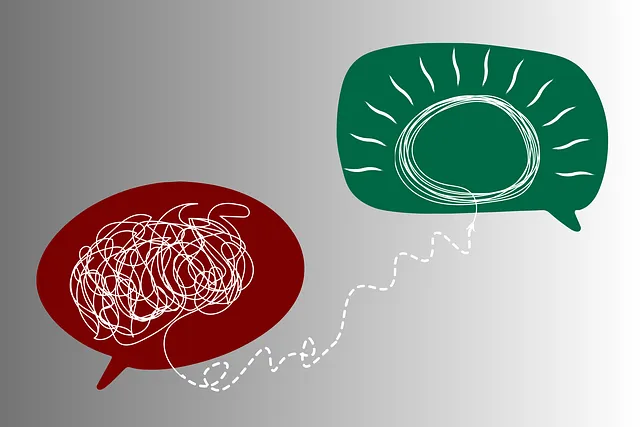Kaiser Permanente Westminster provides swift, compassionate mental health crisis support through dedicated Crisis Intervention Teams (CITs), comprising trained professionals from diverse backgrounds using evidence-based methods. They also offer comprehensive Mental Health Education Programs focusing on stress management, trauma support, and depression prevention. CIT training, integrating psychological first aid, suicide prevention, and de-escalation strategies, is crucial for empowering staff to handle crises effectively, reduce stigma, and improve overall mental wellness in both patients and employees.
“Crisis intervention teams (CITs) play a vital role in healthcare settings, providing immediate support during mental health crises. This article explores the importance of CIT training programs and their impact on effective crisis response. We delve into the structure and benefits of these programs, using Kaiser Permanente’s mental health services in Westminster as a case study to understand how organizations can empower staff to handle critical situations. By examining implementation strategies and evaluation metrics, we highlight best practices for successful CIT integration.”
- Understanding Crisis Intervention Teams: A Brief Overview
- Kaiser Permanente's Mental Health Services in Westminster: An Examination
- Training Programs: Key Components and Benefits for Effective Crisis Response
- Implementing and Evaluating Crisis Intervention Team Success in Healthcare Settings
Understanding Crisis Intervention Teams: A Brief Overview

Crisis Intervention Teams (CITs) are specialized groups designed to provide immediate and effective support during moments of crisis. These teams play a pivotal role in communities, particularly in healthcare settings like Kaiser Permanente facilities in Westminster, where they ensure that individuals facing mental health challenges receive prompt, compassionate care. CIT members are typically comprised of trained professionals from various fields, including psychology, social work, and psychiatry, who collaborate to de-escalate situations and offer evidence-based interventions.
At Kaiser Permanente, the focus on mental health services in Westminster extends beyond crisis response through comprehensive Mental Health Education Programs Design. These programs aim to empower both team members and the community with the knowledge and skills needed to manage stress, prevent trauma, and promote overall well-being. By integrating Stress Management techniques and Trauma Support Services into their training, Kaiser Permanente ensures that its CITs are equipped to handle a wide range of crises, making a significant impact on the lives of those they serve.
Kaiser Permanente's Mental Health Services in Westminster: An Examination

Kaiser Permanente, a renowned healthcare provider, offers a comprehensive suite of mental health services in Westminster, catering to diverse needs. Their dedicated team provides evidence-based practices and resources for individuals struggling with mental well-being. Beyond traditional therapy, Kaiser Permanente’s approach includes innovative programs focused on depression prevention, emotional healing processes, and stress management.
The organization’s commitment to mental health is evident through tailored interventions designed to support community members. By integrating various therapeutic modalities, they ensure accessibility and effectiveness in addressing common mental health challenges. Whether it’s managing stress or preventing depressive episodes, Kaiser Permanente’s Mental Health Services in Westminster are geared towards empowering individuals to lead healthier, happier lives.
Training Programs: Key Components and Benefits for Effective Crisis Response

Effective crisis intervention team (CIT) training programs are pivotal for organizations like Kaiser Permanente in Westminster seeking to enhance mental health services. These programs equip employees with crucial skills to support individuals facing crises, fostering a culture of mental wellness within the workplace. The key components of such training typically include psychological first aid, suicide prevention techniques, and de-escalation strategies. By integrating Mind Over Matter principles, CIT training empowers team members to recognize signs of distress, provide immediate assistance, and connect individuals with appropriate resources for ongoing support.
Beyond individual benefits, comprehensive CIT training programs contribute to a broader Mental Health Policy Analysis and Advocacy effort. They raise awareness about mental health issues in the workplace, challenging stigmas and promoting understanding. Trained teams can identify systemic barriers impeding access to mental wellness services and advocate for policy changes that ensure comprehensive support for all employees. This holistic approach aligns with Kaiser Permanente’s commitment to delivering quality mental health care while prioritizing the well-being of its workforce.
Implementing and Evaluating Crisis Intervention Team Success in Healthcare Settings

Implementing crisis intervention team (CIT) programs within healthcare settings has proven to be a game-changer in addressing mental illness and reducing stigma. Organizations like Kaiser Permanente, with its extensive reach in communities such as Westminster, play a vital role in fostering emotional healing processes through these initiatives. By integrating CIT training into their services, Kaiser Permanente ensures that staff members are equipped to handle crises effectively, providing immediate support to individuals struggling with mental health challenges.
Evaluating the success of CIT programs involves assessing not only the immediate outcomes but also the long-term impact on patient care and staff well-being. Does Kaiser Permanente’s approach lead to reduced burnout rates among healthcare professionals? Indeed, by fostering a supportive environment and implementing stigma reduction efforts, these teams contribute to improved emotional healing processes for patients while also supporting staff members in their roles. Such programs are essential in creating a comprehensive strategy for managing mental health crises within healthcare settings.
Crisis intervention team (CIT) training programs are vital tools for enhancing healthcare settings’ response to mental health crises, particularly in places like Kaiser Permanente’s services in Westminster. By equipping staff with the skills to de-escalate situations and provide immediate support, these programs can significantly improve patient outcomes and overall care quality. As discussed, implementing CIT success involves comprehensive training, ongoing evaluation, and a commitment to fostering a culture of care and resilience within healthcare organizations, such as Kaiser Permanente Westminster.






